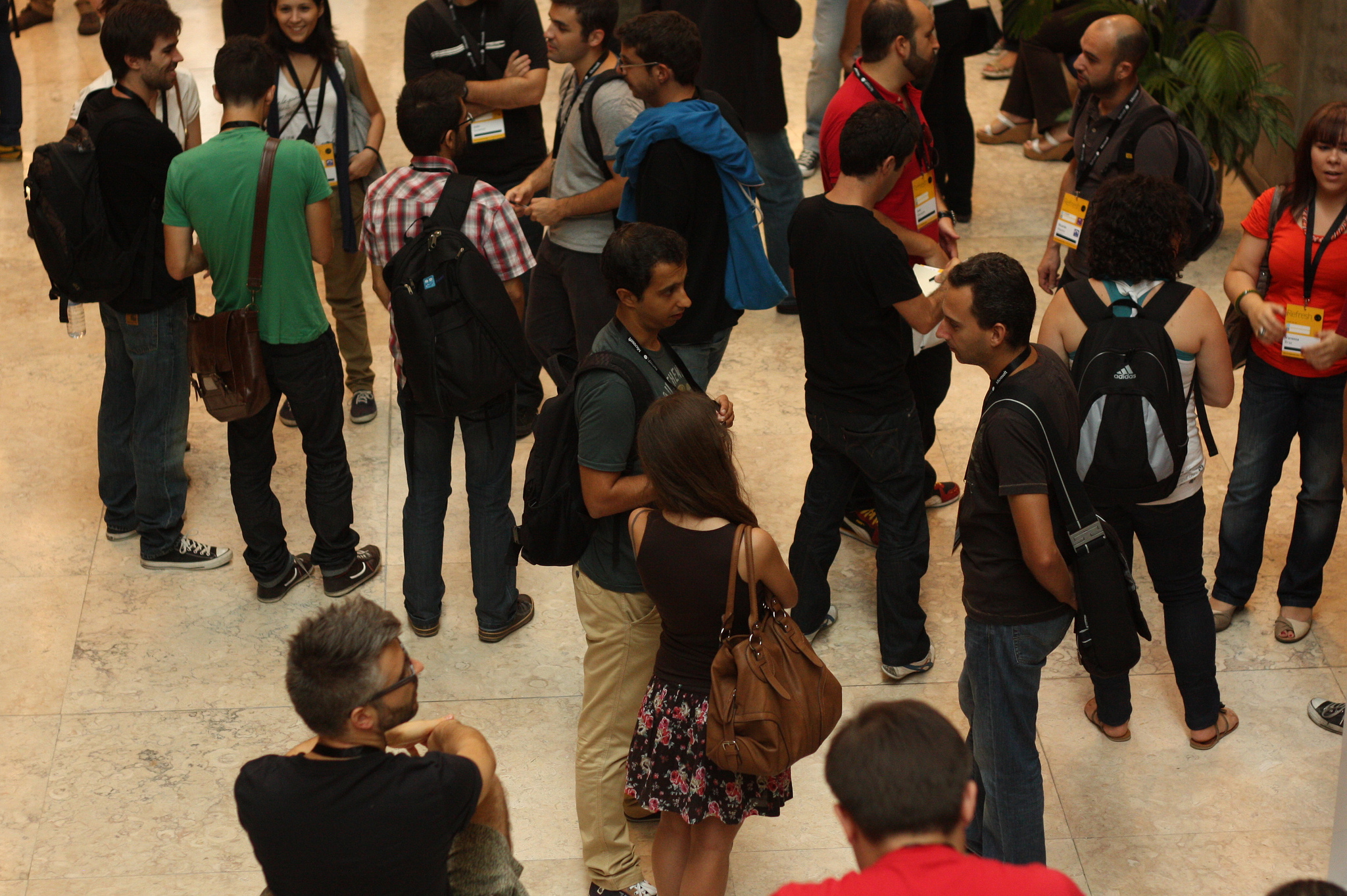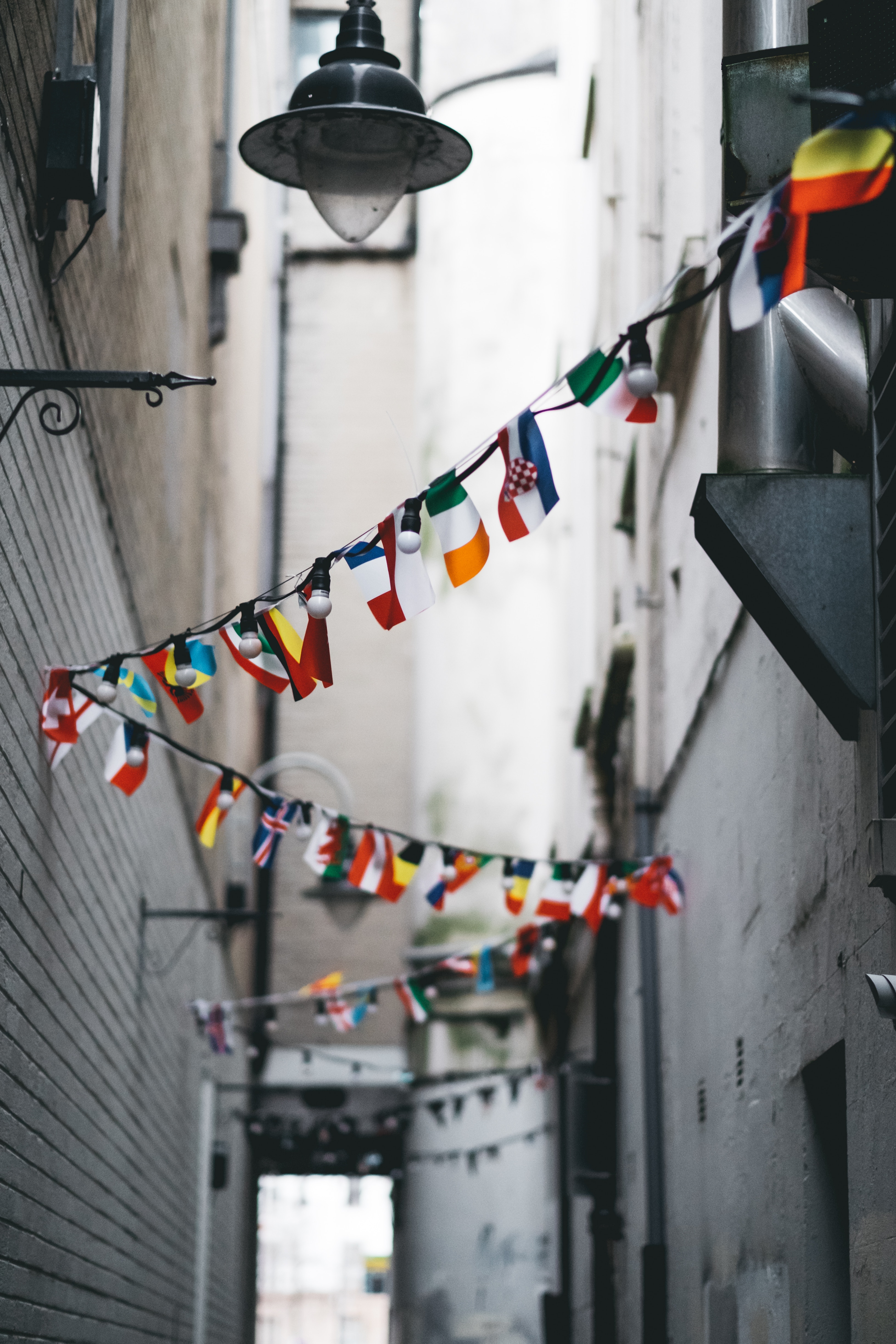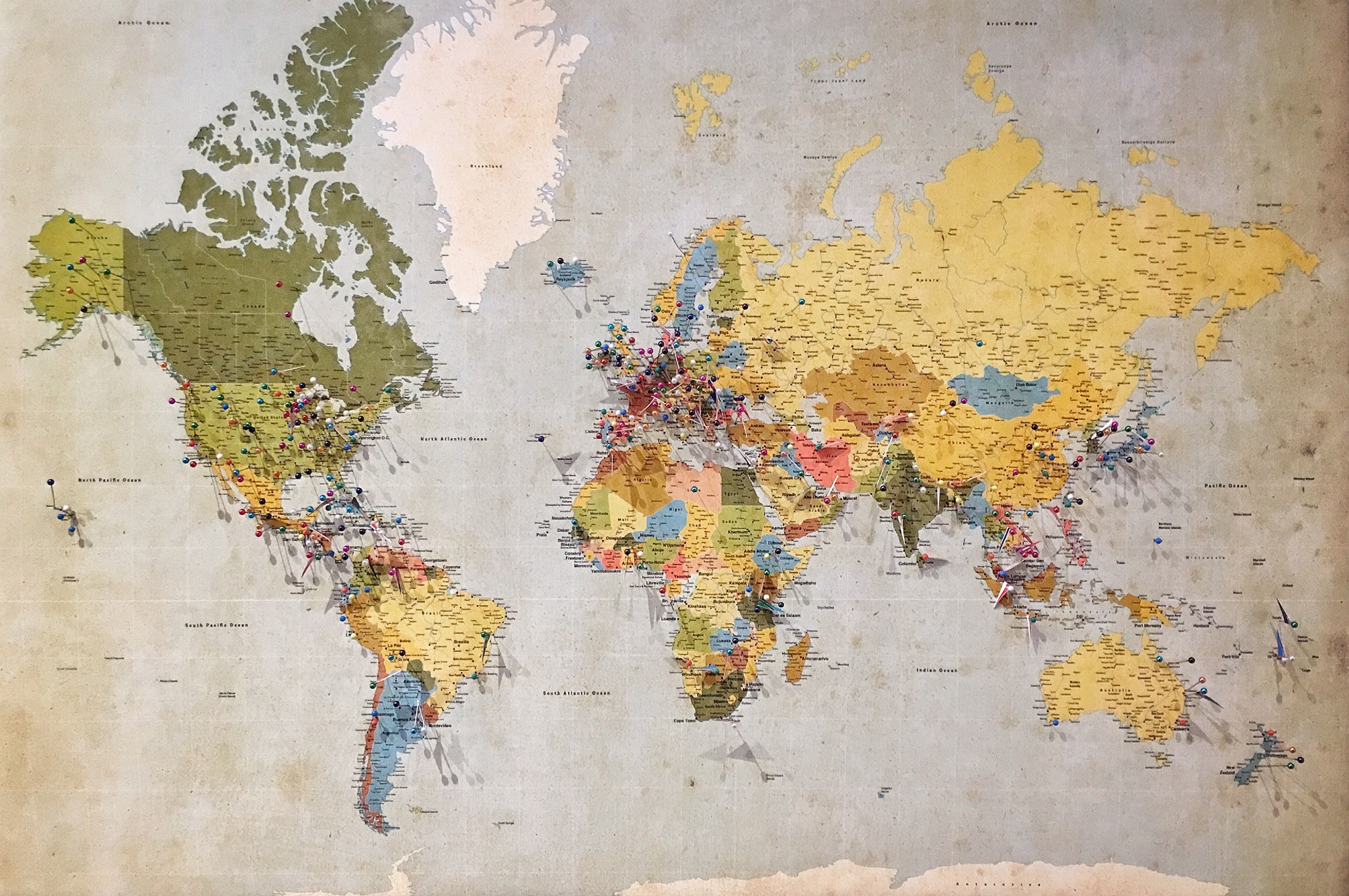E&M’s Friederike Sandow reflects on perceptions and effects of globalism, and what it means for Europe and beyond today.
Globalism. It’s a term lightly thrown around which has come to encompass so many different things, when all it really means is: we are one world.
Globalism can stand for the root of all evil and the problems we as societies tackle and at the same time for the solution.
Globalism can come to mean that we are wearing nice clothes that we have bought as a bargain, or that we are eating the most foreign foods. It can come to mean to have something like the Kebab awards in the United Kingdom, it can also stand for American weddings in Italy or a volcano in Iceland disrupting Christmas holidays. Globalism can be connected to studying abroad or having friends all over the world; to work and travel in Australia, to multilingual flat shares because you live with people from different countries, and to be looking for jobs all over Europe.

Globalism can stand for a better, broader education, a global declaration of human rights, treaties on the non-proliferation of Nuclear weapons. It can stand for peace. But also for economic crisis. Or war in Afghanistan, or civil war in Syria. Or a refugee crisis. Or Brexit. Trump. Bolsonaro.
How can one little wor(l)d entail all the good and all the evil? So much joy and so much pain? It can, because like everything that is all fun and games, there are winners and losers. And there are the perceived winners and losers. And there is misusing the term “globalism” for all the wrong reasons.
Our world is so intertwined, that one decision taken in one country or within one cross-country organisation spills over and unleashes a global wave. It is paralysing. Especially if the decision is anti-globalist.
The supposedly evil that emerged from globalisation: free trade and immigration.
“Globalisation has been achieved by drafting basic codes of protection and, to the extent possible in a decentralised world, by monitoring and promoting compliance. Inevitably, this scrutiny has come into conflict with notions of state sovereignty.”, writes Thomas M. Franck in 2001. Boy, he didn’t even know what was coming at us back then!
Societies and governments have been trying to find answers to the “backlash” of globalisation – by being their own backlash against it. And almost all of them come to the same conclusion: finding non-global solutions. For a lot of governments or political actors within states this means strengthening the nation-state.

Pulling out of climate or trade deals, securing borders, criminalising NGOs, reviving terms such as ‘traditions’, ‘family’, ‘Christian values’, fear mongering against ‘the other’, cutting public funds for culture and education and upping funds for military and security. Their credo is: ‘It’s a dog eat dog world. It’s not nice, but what can you do.’ The supposedly evil that emerged from globalisation: free trade and immigration.
We have, maybe even in our own families or groups of friends, been confronted with political views and opinions that contradict ours. Whether we are talking about the recent election of Bolsonaro in Brazil, Trump in the US or the infamous Brexit referendum – we can split societies almost in half. Charles Kenny from the Centre for Global Development gives us a little piece of mind: “a program of appeasement toward their [right-wing voters] views is wrong — economically, politically, and morally. Globalisation has been an overwhelmingly positive force for the United States and the rest of the world.”
Furthermore, be reminded that the fear of immigration is the highest in regions less exposed to it and more common amongst the ‘older’ generation (see Brexit vote). Kenny goes on to write that according to a study “Political scientists found that whites are consistently less supportive of trade deals than are members of other racial groups. If markers of economic hardship – such as low education, skills, or wages (…) determined opinions on trade (or migration), minorities would be the ones opposed. In fact, the reverse is true.“

For other actors and activists the answer to the problems that globalism creates is also local, but it’s local with the belief in being able to put local into globalism. It means to start finding local solutions that are tailored at the specific situations, learn from them, and propel them to a global stage. It means taking action into your own hands. It means that if a government is not willing to provide long-lasting solutions, you and me, and we, we need to create solutions that work locally and which can be applied globally by likeminded people.
But also on a national level we need to put pressure on our governments to not fall into the “dog eat dog” trap, but to find fairer solutions to a fairer globalism. Sharing information better, cracking down on tax havens, stronger international agreements on climate, human rights and data. We have been on the right track, and we cannot afford to be pushed off the road now and resign, if anything, we need to keep going. We just need to be willing to do it fairer. Globalism is not the evil of all things, and it’s not ‘failed’. It’s a worldview that is worth fighting for.
To close with angry Kenny: “it is time for internationalists to take the fight to an ageing minority of nativists and wall builders.“
Cover photo by Richard Gatley on Unsplash










